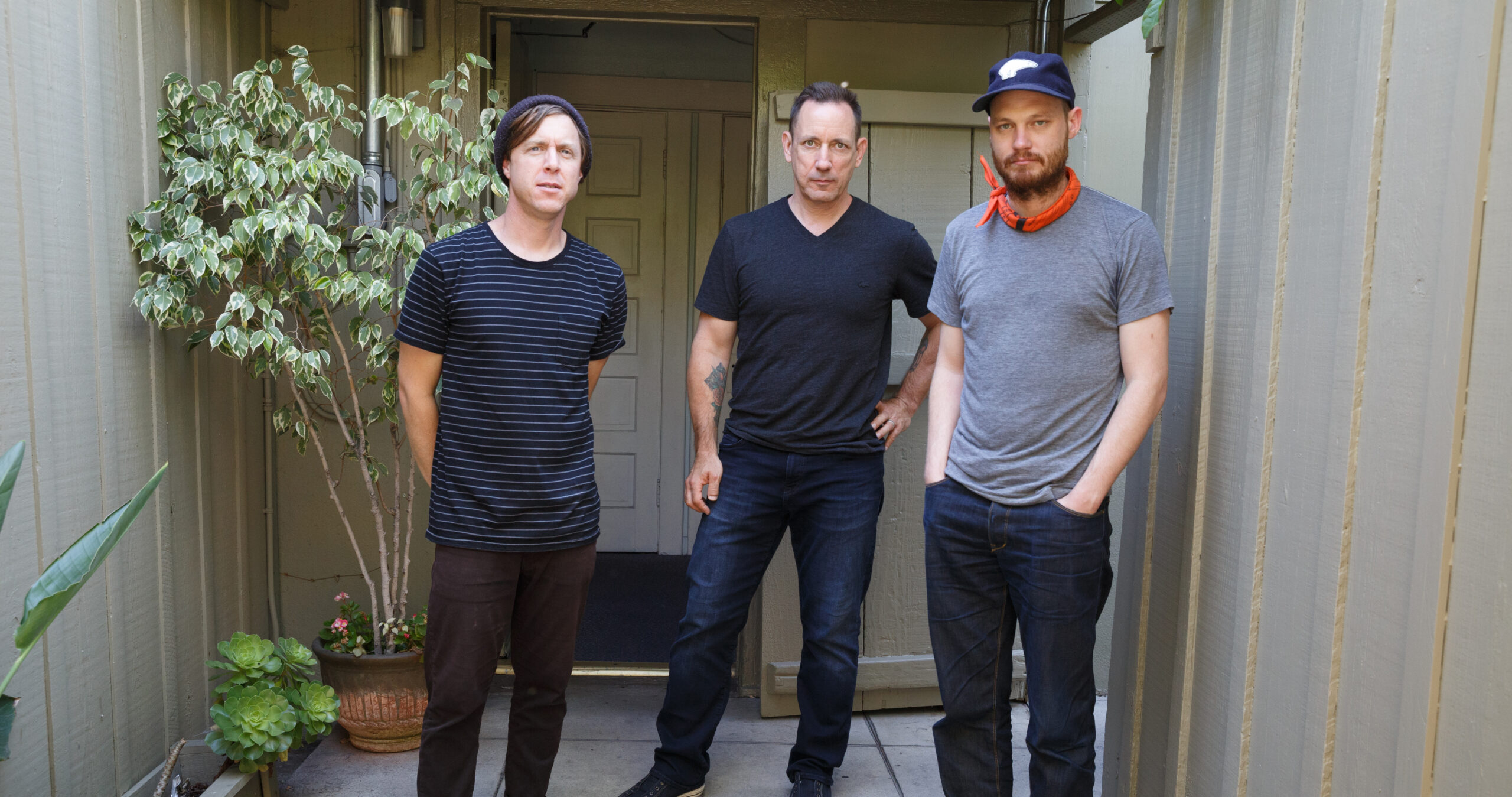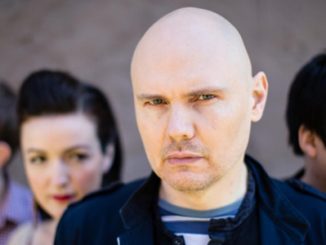
Smashing Pumpkins’ Jimmy Chamberlin on the newest chapter of his jazz experiments. Honor released by Jimmy Chamberlin Complex is not the only example of how different individuals brought together different influences, energetics, and ideas. But also, one of the most outstanding records made by Chamberlin himself. Dan Volohov talks to Jimmy Chamberlin, drummer for The Smashing Pumpkins and Jimmy Chamberlin Complex. Jimmy talks about Honor and the language of drum-parts, about improvisational component of jazz music and Gish about capturing the feelings and different writing environments.
You started gravitating towards solo-creativity after Zwan broke up. And I guess the fact that Billy Corgan was focused on his solo-creativity and you started writing a lot more, played its role here. As a result, we got Life Begins Again – eclectic and a very honest album. What has been moving you back then, and how different it was within “Honor”?
JC: It’s a good question! I’m always creating. I have always got a studio in my basement. I’m always writing! Not necessarily to any point. Just because it’s the stuff inside of me that used to get out, and Jimmy Chamberlin Complex has always been a great vehicle for that type of self-expression, for all of the members. Everyone is encouraged to bring ideas to the table. At any point, when those ideas reach critical mass and we feel that we kind of need a chance to birth then – we get together and make a record ( laughs ). It’s always been an organic process with my writing.
Even on this last…Not the last but the album before album Smashing Pumpkins record Zeitgeist, I played Billy a bunch of my ideas. And he really started to wrap his head around some of the stuff I was writing. Having somebody like him to encourage you, be creative, and really tap into that part of your identity is powerful. And I don’t take his advice lightly. I try to put his suggestions into practice as much as I can. And really try to explore my creative side because it makes me a better collaborator in Smashing Pumpkins If I understand that foundation.
You noticed once that “as a drummer, you can constantly go back to your jazz-roots and continue to learn”. While playing, you’ve always been approaching things in a lot of different ways. In some ways, Honor sounds like unity of different approaches. Such songs as “Humility” and “Service” compositionally united jazz and prog-rockish elements. Is it a result of a constant learning process or how you decided to approach the things within this particular record?
JC: I think, any exploration in new ground and I’m not saying that I’m covering any ground that wasn’t covered before. The idea that as you get older and you get comfortable with different components of your artistry, the more you realize that the bridges that were built or the barriers that were built between them are really unnecessary. So, I think, as I get older when I’m finding there’s not any reason not to marry jazz-stuff with the rock-stuff and it’s always been like that in The Smashing Pumpkins. I’ve been encouraged to play the way that I play and not really worry about its cultural currency or the rules that apply to alternative rock. ]
I was really allowed to do what I want – and that remains today! With that and having the band of that type of success, because or despite those type of explorations gives you the confidence. And also, the wisdom to know those kinds of old anachronistic rules: “This doesn’t fit with this! And this doesn’t fit with this!”. They were there for a reason at the time. But now, I think, there’s really no place in music for disallowing those types of inspirations and those types of creative passages.
My playing, itself is a compilation of so many different influences. Everything from Elvin Jones to Paco De Lucia on classical guitar or John McLaughlin, Miles Davis, obviously, Coltrane and Duke Ellington. And those guys are really obviously great technicians But mostly famous for breaking down boundaries, right? and really pushing music BEYOND that kind of false membrane that encapsulates any one genre. So, I think, for me, as an artist, that’s what I am most interested in. In not a freakish way, where I really want to marry avant-garde expressionism with reggae…Things that kind of way-way out. Although that might be cool, I think that knocking down the stereotypical name-tags we put on music is a good place to start creatively.
While recording Mellon Collie and Infinite Sadness, it seems that you approached each song and a part of the album in a different way adding new colours to the canvass. As a result, you have such songs as “Tonight, Tonight”, “1979”, “Bullet with Butterfly Wings” and “Jellybelly” tied together and still resonating as different parts of one piece of writing. Was it a certain attitude you brought while writing and recording?
JC: Yeah, again, I think; obviously, you want to be fearless in your creativity and confident enough to explore the outer reaches of the possibilities in one composition. But in any ensemble…at least for me, I like to do it in a responsible way to work whatever I’m coming up with is someone subservient to the narrative. You want to be emotionally congruent with the piece of music you’re accompanying. So, a lot of those drum-parts were just a reaction to what I was hearing. The visceral nation of “Jellybelly”. Or the orchestrations of something like “Tonight, Tonight”. Those are my emotional reactions to those songs, having heard them and understanding and appreciating all the music similar to those I heard over the years.
Everything from Weather Report to Gino Vannelli or things you may not have heard about. Or things that you hear that strike you in a certain way. And I think, as a young drummer when I was coming up, you really had to do a lot of listening because there wasn’t YouTube. You couldn’t go and watch somebody. So “How ?” and “What ?” always were mysteries. But “Why ?” was a lot more clear. So you understood why people were doing things. Because you were listening, and you had an emotional reaction, you understood the reason for that motive. And now…It seems to me when people learn they understand “How ?” and “What ?” – they know how to do something incredibly complicated but “Where to insert that ?” or “Why you’d play that ?” seems to have disappeared.
I think, with that knowledge when you hear something as emotional as “Tonight, Tonight” or as emotional or “Jellybelly”, you wanna react in an equally emotional way and supply that song with the fire it needs or sensitivity it needs or dynamics that it needs to support the narrative. And, in The Pumpkins, the narrative is always supreme – I really enjoy playing to that point. Just because it gives you a destination with your choices. And everything doesn’t have to be nebulous when you understand that the song is about loss or the song is about conquering, or the song is about the manifestation of something great. When you have those things front and centre and if you have enough technique, your playing would automatically take you to those kinds of common arenas.
Emotional complexity has always been one of the key features of your playing. And I think, it reached a certain peak within Honor. How different is it when you don’t have certain structural elements you can rely on? Lyrics, chorus so your emotionality and expressivity become your main language?
JC: And it’s a great-great question! In a writing environment, you’re doing the work of writing you’re listening, you’re creating, you’re experimenting, you’re playing, and you’re listening back. You’re making determinations as to any types of parts and longer type of process. Regarding Complex, we’re dealing with three individuals in a room, exploring some concepts together with compassion and respect and integrity for each other and really reacting in real-time. So, in either case, there’s a strong narrative. Because one is more essay-based, and another one is more conversational.
Like if you and I would have a conversation about birdwatching or some other things we have in common, we’re going to support the narrative of the common tenant of the conversation. In improvisational jazz- setting it’s very similar to somebody’s playing something or somebody start taking something leaning it a little bit right or a little bit left and the whole band kind of goes there.
That starts another fragment of dialogue in which you all could go down in this path together. And when it’s done successfully, you get those great moments in music. And I’m not saying “great” so millions of people would like it. I’m just saying because it feels good when you’re playing. Obviously, the other part, whether people like it or not is subjective. But for us in Complex is how it feels to us in any given time and with our metrics attached to it, does it have value beyond what we’re doing together. It’s similar to the narrative saying the same and still supreme. It’s just a little different from how you get to the narrative and how it is exemplified in the exercise.
And while working as a solo artist, do you always start writing with drum-parts? Or, you may come with some ideas for arrangements etc.?
JC: Yeah, so both. Sometimes we get together. For this album, for Honor, Sean Woolstenhulme, Billy Mohler and I just got together, and everybody brought five ideas to the table. And those were four or five best ideas… The last song on the record “Commitment” was that I actually wrote on my own. I wrote it for a drum-clinic I was doing. And had actually played it for a few people that really like it. When Mohler said: “Look, if we’d have one more song on a record – we’re gonna be allegeable for Grammy…” – which is important for him. I said: “Well, I got a song laying around…I got the drum-part done. If you guys want to add a guitar to it – go ahead!” – I’ve sent it to them. And they did their thing totally transforming a song into what it is now.
So that was the only song that was really constructed on my own. But for “The Parable”, Randy Ingram, myself and Mohler, we just wrote motives and sent them to each other over text messages. And then I’d write a drum-part and send it to them…At least, we had some basic idea of some of the jams we’re going to go. Do. We got in. And then, Randy would kind of chart everything out for everybody.
So when we got into the studio, we actually know what would be where…I think, unless you’re trying to limit yourself to inspire creativity specifically, then any type of input should be welcome. Like: “Hey, I’ve heard this thing on a radio! It reminded me of this! It reminded me that feeling…” – those kinds of things are good places to start. If you got a demon riff of all time, you want to play for the band…A lot of that stuff for the first Complex record was written in my basement when my daughter was just born. Mohler flew to Chicago and spent a couple of nights at my house. We wrote a lot of those motives. And then I flew out to L.A., and we further solidified those things. But first…Seven songs on “Life Begins Again” were just the first seven things we played ( laughs ). So, it’s always kind of that way!
When you play with the guys that are that good, and I’m talking about Sean and Mohler and Randy and Adam Benjamin and Shane Endsley and Ben Wendell – these guys are at the top… Some of the best musicians in the world. So it’s just fun for me. Just being a drummer and hanging out, trying to be as good as I can because I know that these guys are levels above. So I think, when you’ve got those types of opportunities, you don’t want to squander them.
Listening to you right now, I started thinking about “Humility”. Quite an interesting example of compositional work. And how it starts with sneer-drum-type-of-beat and then you go to swinging, tempo changes and with it – saxophone and tube start playing. And all you’re getting to a certain point of super-intensity. What creates this intensity during the writing process?
JC: I think, just the dynamics and how they can enforce or re-enforce the conversation or statement. Everybody who plays with the Complex is rooted in jazz-music so; they have a really cogent understanding or dynamics and how to move things forward; how to make things seem diminutive in scope. When we play passages that are like that, that are very simple off the top, we’re always looking for a fire-escape, or somewhere you can go. Or sometimes, if the emotion is right, you want to hang in that room and hang there for five minutes.
Those songs like “Loki Cat” and some songs like that don’t really change their model; those are songs where you’re just or with where you at. Again, it’s really like: “Whatever way the wind’s blowing.” The main idea within the band is just a document of an afternoon of the guys feeling in a certain way. Obviously, these guys have the technique to do it.
To turn on a dime and explore the other reaches of dynamics at any given time. With those facilities available you’re playing but also trying to experience things in time. As you experience those things at a time – things change! The door opens – door closes, a window opens – window closes, Sun comes up and starts raining. Those types of things are the same types of things happening in a musical environment, in your heart and your head.
I guess, for all musicians, it’s typical to reach a point when they stop replicating what other people do. And start sounding like themselves, rather than copying Max Roach. There was a certain complexity of playing all through Gish album. But, was it a beginning of your career when you reached a harmony within yourself or a bit later?
JC: I don’t know! I don’t really look at my timeline in terms of when I started being me. I just felt I was always kind of that guy, I’ve always played like that. Even my earliest recordings…even when it was 15, I played as I played. I think it’s just a by-product of people I listen to and people I respect and emotions I want to put forward. My playing is a little more conservative now when it was like on Gish, but I don’t think it’s that different. I listened to that record the other day, ‘cause Billy and I were talking about it. And I was pretty amazed at how crystal-clean it is. Because my memory of it is like…We didn’t have a lot of time! We didn’t have a lot of money! The drums were all done in a couple takes in a few days, and then we moved on.
But going back and listening to it, it’s very complex like. It’s very much a document of a moment in time. Which, I think makes that record so special because we didn’t have time to spend on it. And you do hear those chances being taken when they were really chances to be taken. Because, later on, when you took a chance as that and things went south, you could always re-do it. If you got two times to do the song, you either get it right or move on. So, it’s a little bit different type of pressure. You can hear it in the music! It’s a pretty bold statement.
I think if you’d listen to that record in the context of what was going on in alternative-rock at that time, like R.E.M. – kind of meat and potatoes. Just that backbeat-stuff that was going on…I remember a lot of people scratched their heads when that record came out: “Why you guys wanna play like that ?” and we just thought that was the coolest thing ever! When I just joined Smashing Pumpkins, I was not thinking that we’re gonna be a prog-rock band or we’d go into those arenas. But we were certainly overjoyed when we started writing songs like “I’m The One”, “Tristessa” and “Bury Me” and others.
That stuff was a drummer’s dream (laughs)! Riding my wheelhouse, I was able to play, channel my inner-Tony Williams and all that stuff…And still do it, in a pop-context! As time went on, I was just encouraged just to be myself. I was never asked to be anything other than a suburban kid from Joliet [Illinois] that I was. With the bad haircut and the band clothes. Billy was just ok with it. And he was just: “Dude, whatever you do is amazing! Let’s do more of this stuff!” – So, I think, that has a lot to do with your confidence, and that has a lot to do with your ability to foment and identity.
If you’d read about Tony Williams, how he had played with Miles Davis when he was 16-17…And Miles basically let him do whatever he wanted. That’s how he developed his style. So I think, for young musicians, finding the collaborators that are ok with what you’re doing, giving them the license and permission to explore the other regions of your own self – that’s, I think, the best possible place you can be as a musician.
Playing with Frank Catalano who also joined you while recording Honor, you got to jazz-music. Following your words, this experience became a certain point of reloading. What did you learn at that point and how much this particular experience changed your musical accents?
JC: It has been so long since I’d played any straight-ahead and probably not since I’d been in my teens. I had a big band teacher when I was 15 or 16. This guy – Jerry Drauden was rooted in big band stuff. I had a Brazilian teacher at that time. This guy – Hugh Wilson, really rooted in Brazilian music. It has been a long time since I had played something like that. The challenge from going and playing The Complex local gigs, where the things are loud, and you can hit the drums hard – going from there to playing intimate dinner-theatre rooms where the front row is basically 16-feet\inches from the front of your bass drum. But you’re still playing ferociously and super-up-tempo—versions of “Impressions”, Coltrane stuff.
It’s a challenge to bring your bass-line dynamics down and still be able to play with dynamics. It took me about a year-year and a half to get back to where I was really comfortable at those speeds and those velocities. But coming out of this stuff makes you just such a better drummer! If you can play that stuff as quiet as a church mouse, you can really explore the outer reaches of your technique. And obviously playing with un-amplified bass, un-amplified piano and saxophone…Drums are loud! You got to be able to hit them in a congruent way with the dynamic limitations of the other instruments.
To a point, “The Parable” sounds like a reference to that experience – such a perfectly captured that beatnik-era bebop, you’ve always been a fan of. What were your aims like with this particular record?
JC: I think it was a fun record to do! It benefited from a lack of preparation, and it suffered from a lack of preparation. I think there are things there’re things that could have been more glued together had that band being rehearsed a little bit more. So it would have been a little bit fun, but again, the whole point of this stuff is to go there. “I’m only gonna go there if I could succeed.” – those types of things are dangerous to me. If you’d start thinking: “I’m going to this because I know how to do it! And I’ve done it successfully before…” – that’s not just anybody, and I do work with things. Even with this last Pumpkins record Shiny and Oh So Bright, Vol. 1 / LP: No Past. No Future. No Sun” is very electronic with a lot of drum-replacement stuff on it. Billy and I challenged ourselves to write a Pumpkins record but without using big guitars and syncopated drums.
So it’s like: you shoot yourself in the foot. BUT to not go to those places is really doing a disservice for yourself. Really like: “I don’t like this part of my body! I don’t like this part of myself! I don’t like the way I am in these situations!” – those are parts of us. And I think, the more we can accept those things and celebrate them somehow, the more of intact human being we become. I don’t think…Obviously, Chris Speed and those guys are fantastic musicians, Playing with Chris is just…an absolute honour.
We played a lot of live gigs together, after that. I played with very few people playing the drums but really playing the drums so I can watch this person playing (laughs ). And Speed is definitely of that level! Everybody else too. Chris, in particular, was really stand out on that session. But again, I think The Complex, and the concept of the band: “Let’s be ok with the moment in time! And let’s document whenever we can!”
But when you’re playing together. What helps you to capture these feelings?
JC: You need to be open to the things providing information around you. I was in L.A. at that time. Mohler and Sean were in L.A. I had a couple of days off. And…we’re always thinking about music. We’re always thinking about: “When there’s the next time we can get together and do this ?” – whenever we have these opportunities, we’ve already created kind of sacred space within the context of the trio of myself, Billy and Sean. The covenant of it is like: whenever we can do it – we should do it. Without being like: “Oh, this isn’t a good time! It isn’t a good time!” because sometimes the times that aren’t good provide fruit you won’t get at good times.
Everybody has been around the block enough as an artist, to know that music like this is not on your time. It’s not really at any time. And really, whenever it’s available, you have to be ready to harness that stuff, just like if you’re writing a book and you get a download. And it would help if you got it done on paper. It’s a lot like that – “Oh, my God! I’m so glad we’ve done it together! I got six months of ideas I wanna play for you guys, I’ve been waiting for this…” – so I think, it’s just making yourself available for the way the currents are taking you. And I think, that’s in everything.
If you’re cognizant of the harmonics you’re living in, that’s it’s easier to provide additional harmony and context for those things when you’re congruent as opposed to like: “Ok! No matter what happens in the February from 15th to 25th, I’m gonna be here; we’re gonna create this album!” – maybe not! For me, it’s better always to be creative. And when you get together, you could celebrate that creativity.
Listen to ‘Honor’ by Jimmy Chamberlin Complex – BELOW:





Be the first to comment